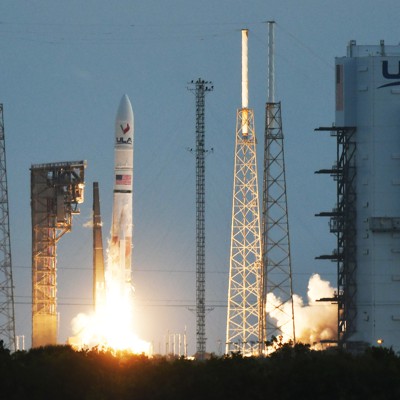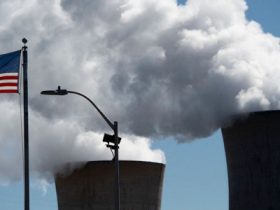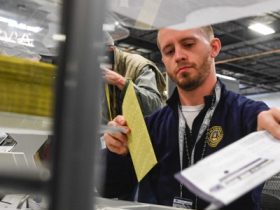United Launch Alliance’s new Vulcan rocket won’t send any Space Force payloads to space this year, company officials confirmed late Thursday evening, delaying the planned national security launches to next year.
Space Force officials hinted about ULA’s trouble launching national security missions on Thursday: “I will say, with only six weeks left to go in the calendar year, that we are getting challenged to be able to launch this year,” Lt. Gen. Philip Garrant, commander of Space Systems Command, told reporters at a Defense Writers Group event.
ULA’s Vulcan was supposed to fly two Space Force missions, USSF-106 and USSF-87, by the end of 2024, but the new rocket hasn’t been certified after completing its second flight in October. The Space Force is still investigating an abnormality that occurred during that flight where material broke off one of the solid rocket boosters. Garrant said he’s confident Vulcan will get certified—it’s just a matter of when.
“If they are not launching by the end of the year, we would delay those [Space Force] launches,” Garrant said.
Vulcan is the centerpiece of ULA’s plan to compete against Elon Musk’s SpaceX, which has dominated the launch market in recent years. The Space Force is trying to bring in more launch providers through an effort called the National Space Security Launch program, and has tapped SpaceX, ULA, and Blue Origin to provide the first NSSL Phase 3 launches in “Lane 1,” which is intended for less risky missions. But awards in “Lane 2,” the more challenging heavy-lift missions, are on hold until Congress passes a budget, Garrant said.
SpaceX is the only company that’s certified for Lane 2 missions, Garrant said, but ULA and Blue Origin, which plans to launch its New Glenn rocket for the first time before the end of the year, are working toward certification.
Meanwhile, SpaceX is continuing to develop its reusable mega-rocket Starship, which will likely upend space operations with its massive payload capacity. Chief of Space Operations Gen. Chance Saltzman visited SpaceX facilities in Texas this week to watch Starship’s sixth flight test, alongside President-elect Donald Trump. SpaceX made history in October when it caught a Starship rocket for the first time.
While the company has not approached the Space Force about certifying Starship yet, “they are doing many, many flights, which is a means to certification…we are absolutely watching them very carefully. It’s a phenomenal capability to [low Earth orbit], large, large numbers of satellites. It’ll be a gamechanger. We are thinking about how we might use it,” Garrant said.
“We think the first, most logical, given the payload volume, and I was at Boca Chica two weeks ago and got a chance to see it firsthand, would be like some type of rocket cargo delivery mechanism, but absolutely interested in the potential military utility and definitely following their progress,” he said.
The Air Force Research Laboratory has been working on this concept through the Rocket Cargo program, which awarded SpaceX a $102 million contract in 2022 to explore using its space launch vehicles for cargo transport. That program became a new start in the Space Force’s 2025 budget request under a different name, “Point to Point Delivery.”
Read the full article here








Leave a Reply